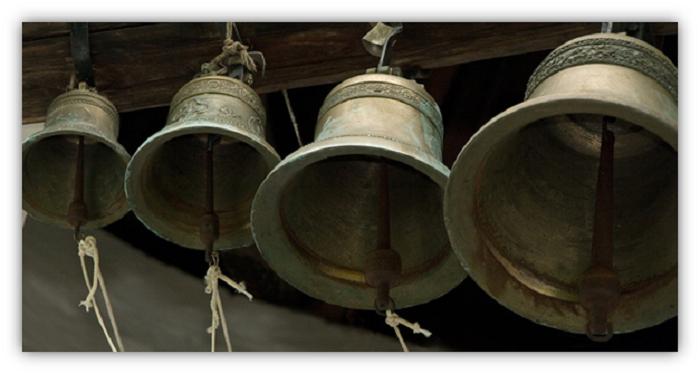Sabbath
Sabbath

The word sabbath is a Hebrew word which means "rest, cessation from activity." When used as a verb, it means "to desist, to bring to an end, to make cease, to rest, to stop." We are first introduced to the sabbath in Genesis 2:1-3 at the conclusion of God's creation work in the first six days. Genesis 2:2 says, "And by the seventh day God completed His work which He had done; and He rested on the seventh day from all His work which He had done." Genesis 2:3 adds another important statement that helps us flesh out the meaning of sabbath and what sabbath theology entails. "Then God blessed the seventh day and sanctified it, because in it He rested from all His work which God had created and made." This seventh day rounds off the whole week, completing the first week and establishing the number seven as a Biblical symbol of wholeness and completion.
The reader will notice that the seventh day is not sanctified in and of itself, but rather it is blessed and sanctified because God rested on it. Sabbath means first of all rest, and only then should we think about the time period when this rest is observed. The principle of sabbath rest is established at the beginning of time itself, although there is lithe evidence in Scripture to conclude firmly that God's people faithfully observed such sabbath rest prior to the giving of the covenant under Moses at Mt. Sinai.
In the two records of the Ten Commandments the wording of the fourth commandment has some significant differences. Exodus 20:8-11, given at Mt. Sinai, reminds God's people that God's creation week is the model or paradigm of activity for them. He worked for six days and completed His tasks; so should we. But then He rested on the seventh day, thus setting that day apart as holy to Him. The basis of the sabbath is set upon the foundation of creation.
Deuteronomy 5:12-15, given in the context of covenant renewal on the Plains of Moab, does not mention creation as the model. Instead, one stops all work and labor in order to remember the liberation from Egyptian slavery. God's mighty power brought His covenant people out of misery and bondage. "Therefore, the Lord your God commanded you to observe the sabbath day." Recreation and redemption form the goal or purpose of sabbath. The cessation from all labor allows God's people the space and time to remember God's mercy. Creation and recreation: two pillars that Christians recall in our sabbath rest.
Exodus 31:12-17 reveals that observing the sabbath rest was a covenantal sign for God's people. Although ancient cultures had festival days and other days in which they abstained from labor, no people had the weekly pattern of six days of work and one day of sabbath rest to God. Thus the sabbath rest is both a divine gift from the Lord as well as a solemn responsibility to remember and observe. As a gift He gives us time to rest, to regain our strength, to receive healing mercies, and to refocus our lives so that God might be preeminent in all things. Exodus 31:17 even goes so far as to say that the sabbath is a perpetual covenant sign because "in six days the Lord made heaven and earth, but on the seventh day He ceased from labor, and was refreshed." Of course, God never gets tired, although He never slumbers nor sleeps (Psalm 121:3b,4; Isaiah 40:28). Joseph Pipa describes this refreshment of God as the result of God stepping back, as it were, at the conclusion of His creative work, contemplating all that He had made, and then rejoicing (The Lord's Day, pp. 30-31). The sabbath rest has our refreshment and healing as its goal.
In this light then, the actions of Jesus Christ, the Lord of the Sabbath, are not violations of the Old Testament, but rather a perfect fulfillment of the sabbath rest's intention. Allowing the plucking of grain in a field and performing healings of the sick reveal God's restorative refreshing purposes in the sabbath rest (Matt. 12:1-8; Mark 2:23-3:6; Luke 6:1-5; John 5:1-17). The Old Testament prescribed the seventh year as a sabbatical year when the ground could rest and in which debts were forgiven. The 50th year was a Jubilee year the sabbath year in which land was restored to the original families of the covenant. On the sabbath the animals get to rest and be refreshed! The strangers and sojourners from other lands and people were not to work but observe the sabbath rest. Sabbath is thus not first of all a day of "things you may not do." Sabbath is resting in order to remember God and His salvation, to get a taste of everlasting rest from the damage and death caused by our sin (cf. Hebrews 4:1-11).
Profaning the sabbath rest was punished with the death penalty in the Old Covenant. This is understandable when we note that keeping the sabbath was an act of faith. The people of God had to believe that God's provision for them on the sixth day was sufficient for all their needs. God provides for us when we work faithfully as well as when we rest from our work. But a people who live for money and pleasure are always restless on the sabbath because they want to serve mammon (money). Such people no longer really believe God's promises.

Psalm 92 is "a psalm, a song for the Sabbath day," and verse 2 sets the tone for observing a well-rounded sabbath day. "It is good ... to declare Thy lovingkindness in the morning, and Thy faithfulness by night." Such a sabbath is truly a delight (see Isaiah 58:13-14).

Add new comment